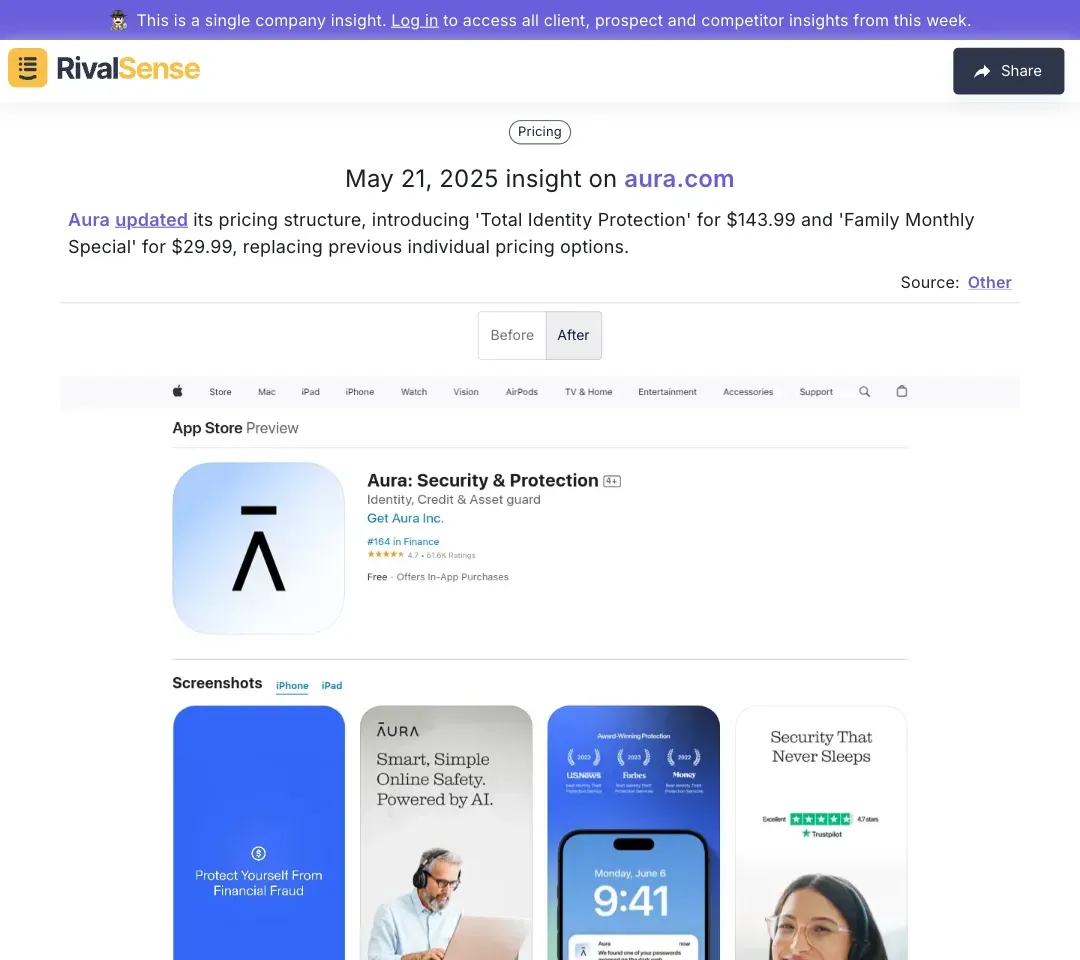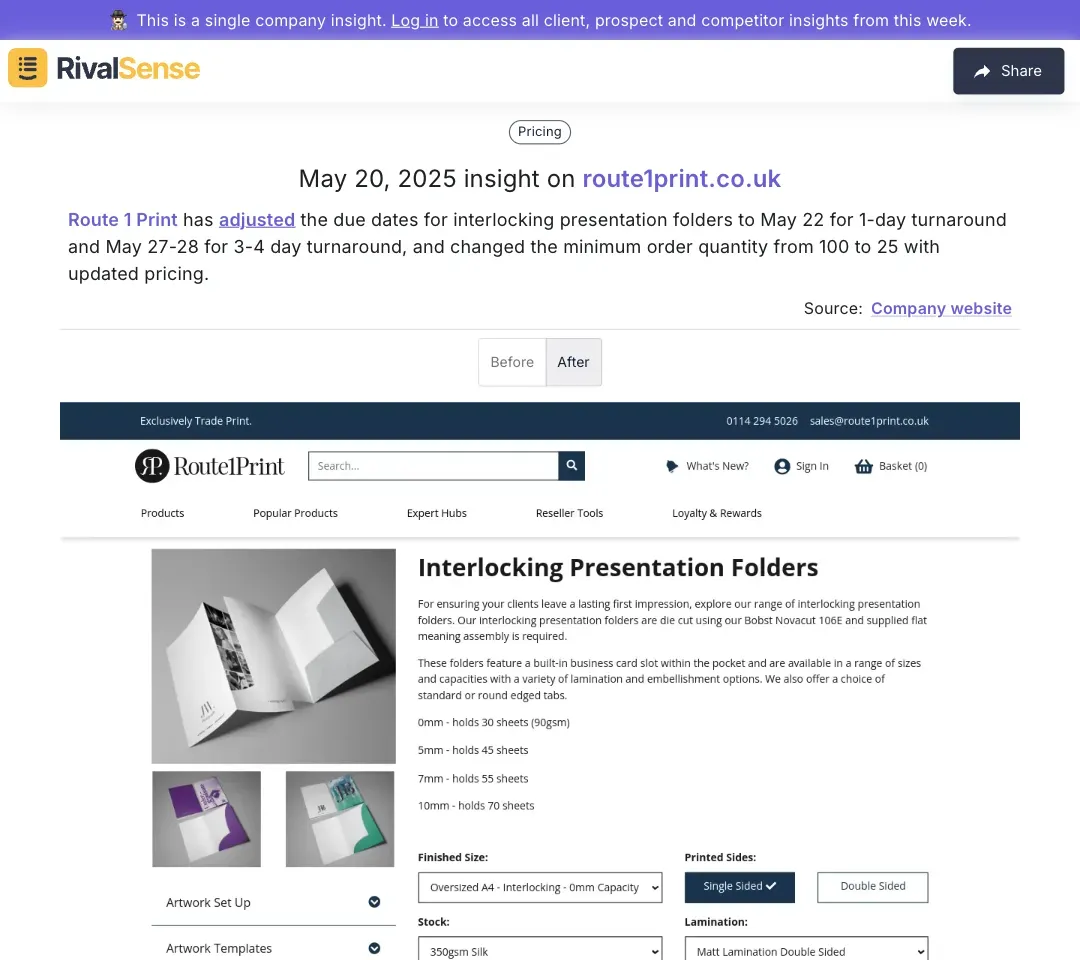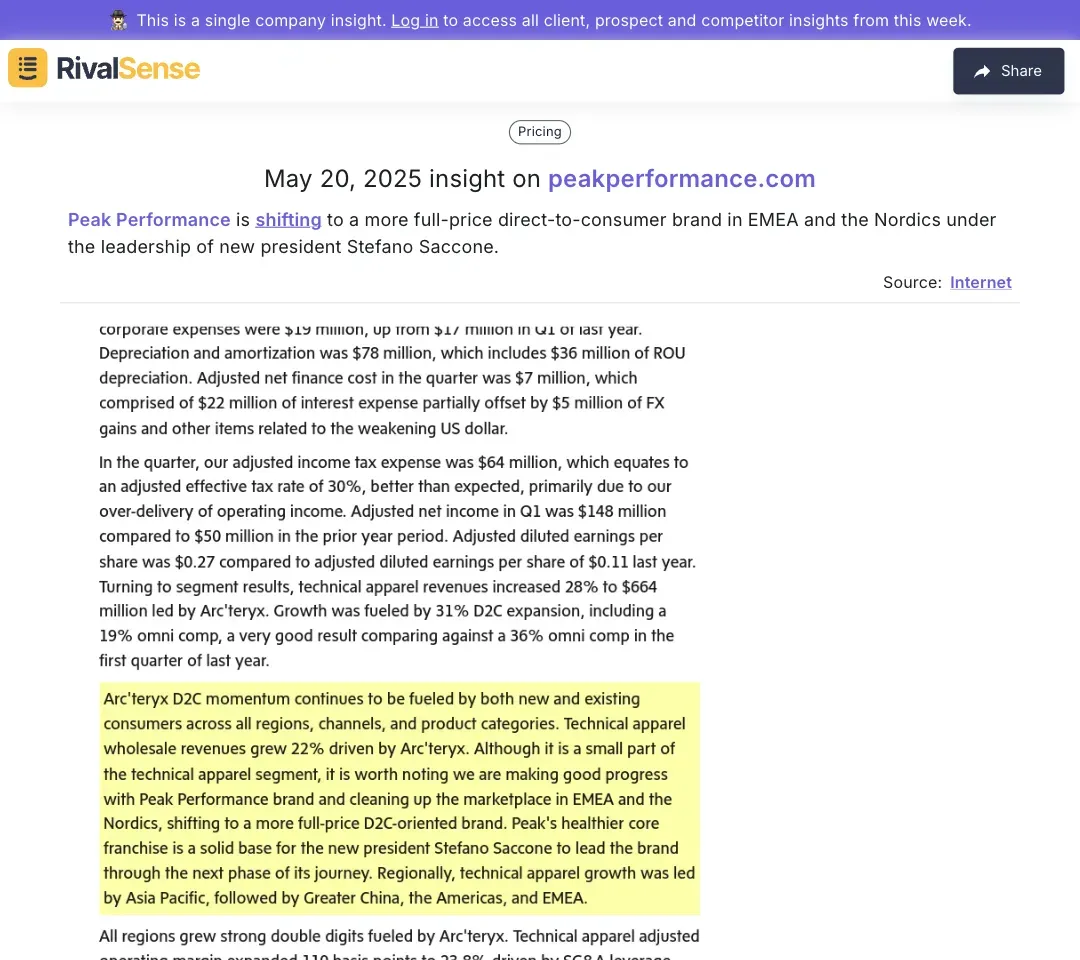Real-World Examples of Pricing Strategy Shifts from Top Competitors
Did you know that 80% of companies adjust their pricing strategies at least once a year, yet only 30% actively monitor competitors’ moves to inform those changes? In today’s hyper-competitive B2B landscape, pricing isn’t just about numbers—it’s a dynamic chess game. Let’s dissect three real-world pricing pivots from top competitors and uncover the strategic genius (or missteps) behind them.
1. Aura’s Tiered Bundling: From Individual Plans to Family-Centric Value

Aura replaced its individual pricing options with “Total Identity Protection” ($143.99/year) and a “Family Monthly Special” ($29.99/month). This shift isn’t just about new packages—it’s a masterclass in value-based tiering:
📊 Old vs. New Pricing Structure
| Old Offer | New Offer | Price | Value Add |
|---|---|---|---|
| Individual Plan | Total Identity Protection | $143.99/year | Bundled credit monitoring + VPN |
| N/A | Family Plan (5 members) | $29.99/month | 50% discount vs. individual rates |
💡 Why It Works:
- ✅ Upselling Simplicity: Customers no longer compare standalone products—they evaluate comprehensive tiers.
- ✅ Lifetime Value Boost: Family plans lock in longer commitments vs. individual month-to-month users.
- ✅ Competitive Moats: Competitors now compete with a bundled suite, not individual features.
🔑 Actionable Takeaway:
“Bundle complementary services into tiers that solve broader problems (e.g., ‘family security’ vs. ‘credit monitoring’).”
2. Route 1 Print’s Agile Pricing: Smaller Orders, Faster Turnarounds

Route 1 Print slashed its minimum order quantity (MOQ) from 100 to 25 units and tightened production deadlines:
📅 Deadline Shifts:
- 1-Day Turnaround: Order by May 22 (vs. prior 3-day lead time)
- 3-4 Day Turnaround: Order by May 27-28 (extended cutoff)
📈 Impact:
- 🚀 SMB Capture: Micro-businesses can now afford short runs.
- 💰 Premium Pricing Leverage: Rush orders likely carry a 15-20% surcharge (hidden in ‘updated pricing’).
- 🤝 Cash Flow Fix: Staggered deadlines smooth production bottlenecks.
💡 Why It Works:
- ✅ Niche Dominance: Own the “we print tiny batches FAST” position.
- ✅ Dynamic Pricing: Charge premiums for urgency without alienating cost-sensitive buyers.
🔑 Actionable Takeaway:
“Adjust MOQs and deadlines to monetize urgency tiers—e.g., ‘Standard,’ ‘Rush,’ ‘Super Rush’ with 10-30% price increments.”
3. Peak Performance’s D2C Premium Play: Cutting Out the Middleman

Under new president Stefano Saccone, Peak Performance is pivoting to full-price D2C sales in EMEA/Nordics, bypassing wholesalers. Here’s the math:
📉 Traditional Model:
Wholesale Price: $50 → Retail Price: $100 (50% margin for retailers)
📈 D2C Model:
Direct Price: $85 → Same margin for Peak Performance, but 15% cheaper for customers.
🎯 Strategic Wins:
- ✅ Brand Control: No more discount-driven retailers diluting premium perception.
- ✅ Data Goldmine: Direct customer insights to fuel hyper-personalized offers.
- ✅ Margin Defense: Avoid Amazon’s race-to-the-bottom pricing.
💡 Why It Works:
- ✅ Post-Pandemic Shift: 68% of B2B buyers now prefer buying directly from brands (Gartner).
- ✅ Luxury Leverage: Full-price positioning aligns with premium outdoor apparel branding.
🔑 Actionable Takeaway:
“Audit your distribution channels—if >30% of revenue comes from low-margin partners, test controlled D2C pricing.”
🕵️♂️ How to Track Pricing Moves Before They Impact Your Bottom Line
These examples reveal a pattern: pricing shifts are never isolated. They’re tied to:
- Customer segment needs (Aura’s families)
- Operational agility (Route 1 Print’s MOQ)
- Channel strategy (Peak Performance’s D2C)
But how do you monitor these changes in real time? Manual tracking is error-prone and slow. That’s where RivalSense shines:
📋 What You’ll Track Automatically:
- [x] Competitor pricing pages
- [x] Minimum order quantities
- [x] Bundle structures
- [x] Channel-specific offers
- [x] Urgency-based pricing tiers
🚀 Get Your First Competitor Report Free:
“The companies that win tomorrow aren’t those with the best products—they’re those with the best pricing intelligence.”
Try RivalSense Risk-Free →
👉 Competitor Market Entry in Action: Real-World Examples and Strategic Insights
👉 Competitive Pricing Strategy Examples: How Leading Companies Stay Ahead
👉 When to Revamp Your Product Strategy: Insights from Competitor Product Intelligence
👉 Strategy for Leveraging Competitive Intelligence in Neurodiverse Talent and Market Leadership
